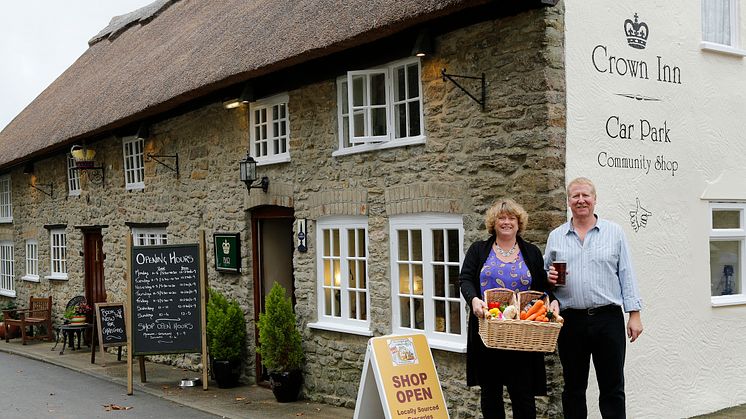
Press release -
The busy village pub is a sign of thriving rural community
For the first time, the positive impact of pubs on rural communities in England has been measured using a scientific approach.
Rural pubs, such as TV’s The Woolpack, are a key factor in village life as they act as a local meeting point and hub for the community to meet and engage with each other, according to Dr Ignazio Cabras, a reader at Newcastle Business School and fellow member of the York Centre for Complex Systems Analysis (YCCSA) within research funded by the British Academy.
“Rural pubs inject between £80,000 and £120,000 into their local community and have become community hubs which foster social engagement supporting integration among local residents and newcomers,” explains Dr Cabras. “While the impact of rural pubs on the community has long been understood to positively benefit the community, this report is the first time that the direct impact of pubs on the local community has been proved.”
Pubs in England have experienced a significant decline in the past two decades directly impacting on the way rural communities interact with each other - parishes characterised by a lower number of pubs showed lower levels of community cohesion.
There are now just over 49,000 pubs in Britain today , compared with 69,000 in 1980, as public houses are hit by factors deterring visitors – UK value sales of alcoholic drinks for at-home consumption are reported to have leapt 15% in the last five years .
“The English rural pub is not simply a place for drink, it has become a hub for the community’s infrastructure offering events, support and friendship. Pubs function as physical hubs which foster engagement and involvement amongst the community, as well as creating jobs for locals and local suppliers.
“It appears that the pub has increased its importance as the main hub in the community’s infrastructure, offering support to a wide range of activities. Pubs function as physical incubators which foster engagement and involvement among the community, as well as creating jobs for local people and local suppliers.”
John Longden, Chief Executive of Pub is The Hub, said: “While there is no direct link with the study and Pub is The Hub, the aims and objectives of both are complementary and confirm the significance of these businesses in the British rural context.
“In rural areas pubs act as essential melting pots for bringing the community together from all walks of life and this study concludes that it is yet another vital services that the countryside cannot afford to lose.”
Dr Cabras carried out the research on the role village pubs play in creating community cohesion in rural England, demonstrating the important social, economic and community functions they play in maintaining village life. The research found the closure of rural pubs as strongly associated with the decline of social drinking and increasing levels of alcohol consumption in private premises.
The eighteen month research programme to understand the importance of pubs in shaping community cohesion and social wellbeing in rural areas of England also involved Dr Matthew Mount, now a lecturer at Leeds University Business School. It looked at 2,769 English parishes and focused on pubs in rural communities or parishes with fewer than 3,000 people situated at least five miles (or 10 minutes’ drive) from towns or larger parishes of 5,000 inhabitants or more.
The researchers examined information such as the availability of local facilities and services, the size of the resident population and the level of employment, which they then used to measure levels of community cohesion and well-being in the selected parishes. Further analysis conducted on a sub-sample of 293 parishes for which information was available at two different time points (2000 and 2010) confirmed that the positive effects pubs have on rural communities are maintained over time.
The study highlighted a strong relationship between the presence of pubs and social events and activities taking place in a parish – much stronger than that for other facilities such as sports halls and other infrastructure. These findings match those gathered from a similar study on rural pubs in Ireland, also led by Dr Cabras and completed at the beginning of 2014.
Image: A typical rural pub The Crown Inn, Puncknowle in Dorset run by Blanche and Alex Alexander and part of The Pub is the Hub initiative
Topics
Categories
Northumbria is a research-rich, business-focussed, professional university with a global reputation for academic excellence. To find out more about our courses go towww.northumbria.ac.uk
If you have a media enquiry please contact our Media and Communications team at media.communications@northumbria.ac.uk or call 0191 227 4571.







